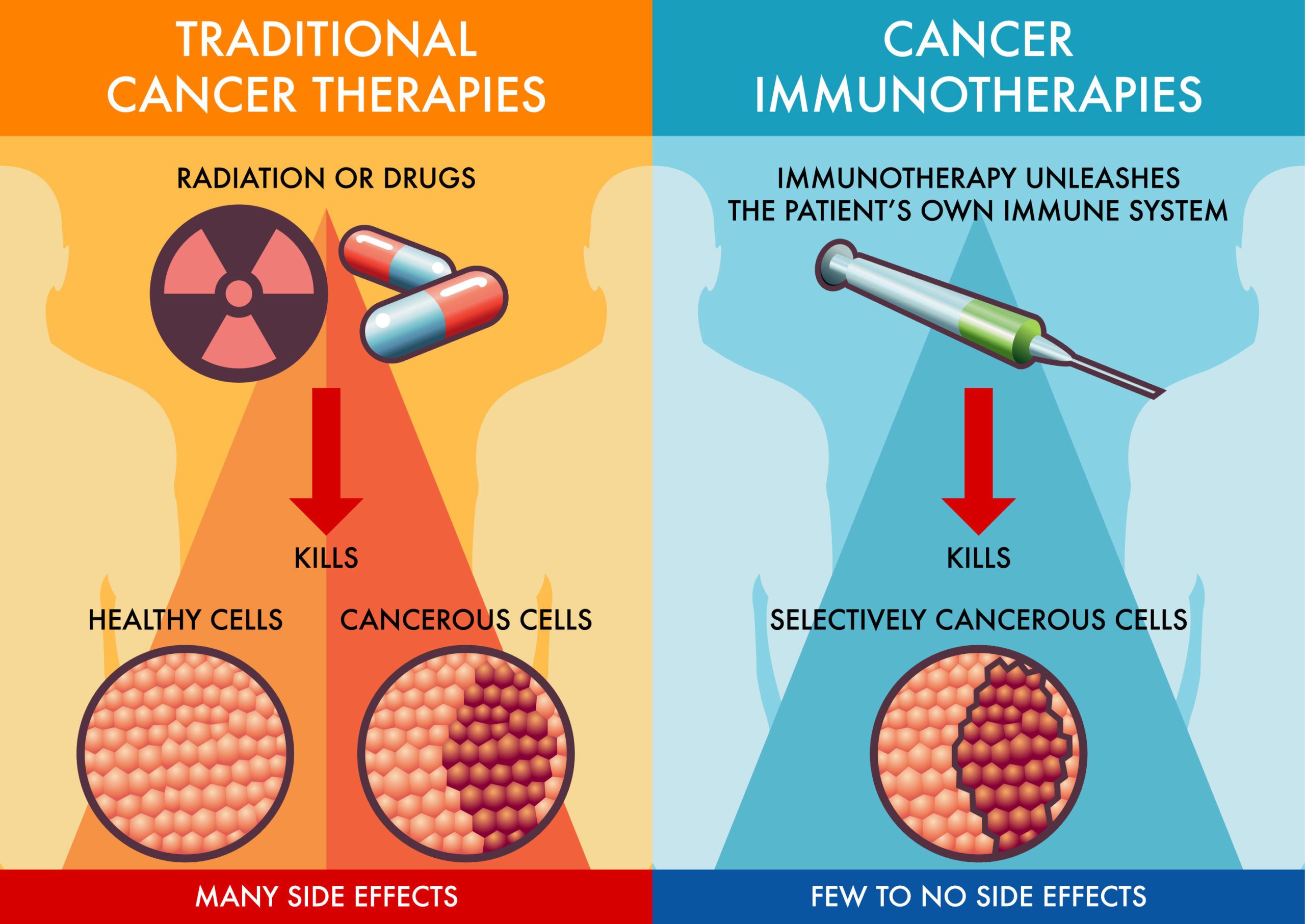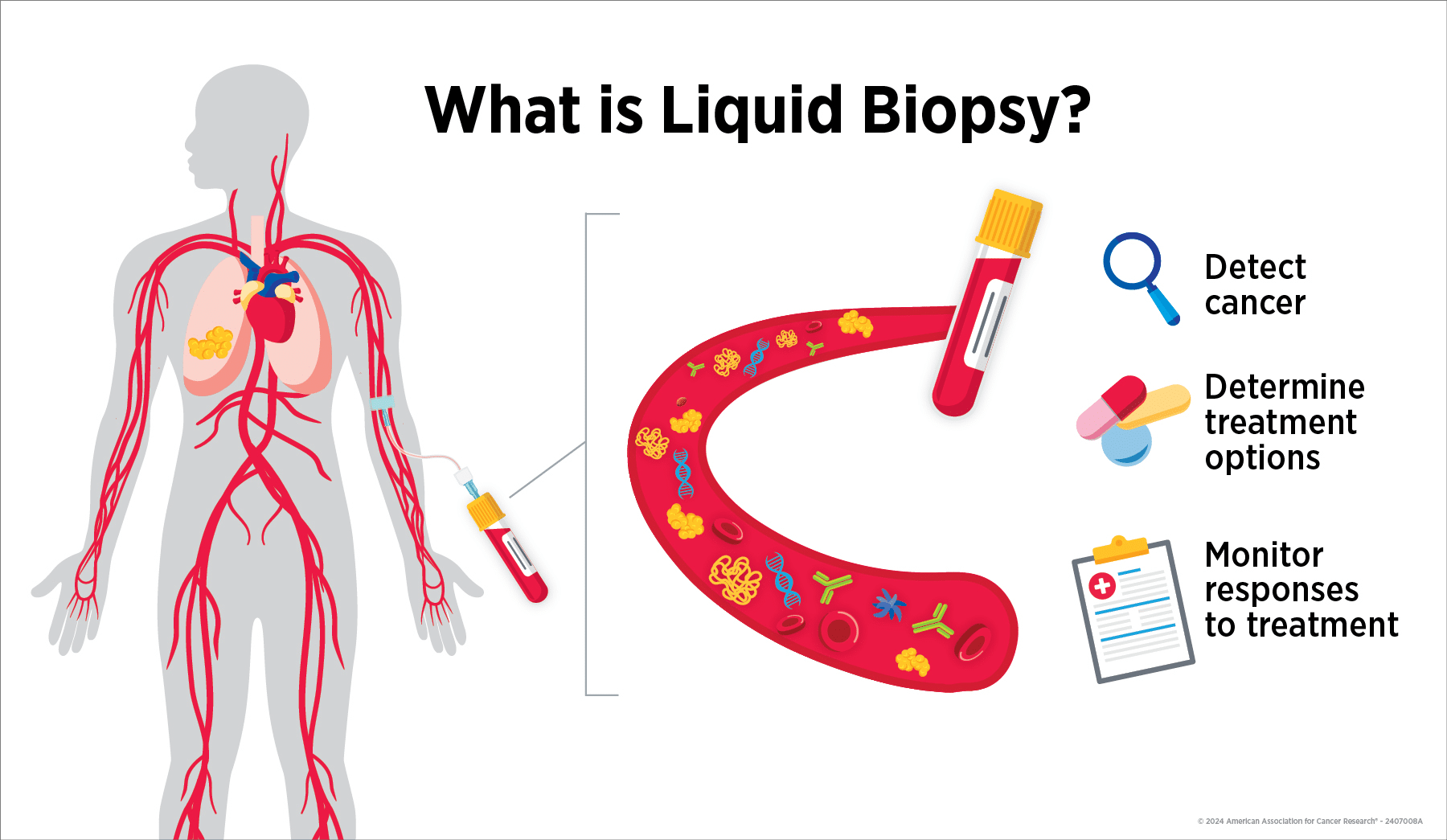Cancer research has seen revolutionary advancements in recent years, offering hope and improved outcomes for patients around the globe. As technology and medicine continue to evolve, the latest treatments are transforming how we approach this disease, providing patients with more personalized, effective, and less invasive options. From cutting-edge immunotherapies to targeted therapies and genetic engineering, these breakthroughs are not only extending lives but also improving the quality of life for those facing a cancer diagnosis.
In this comprehensive guide, we’ll explore the most promising innovations in cancer treatment, the benefits of each approach, and what these advancements mean for the future of cancer care.
1. Immunotherapy: Harnessing the Body’s Immune System to Fight Cancer

One of the most significant advancements in recent cancer research is immunotherapy, a treatment that utilizes the body’s immune system to identify and attack cancer cells. This approach leverages the natural immune response to detect and target cancerous cells without harming healthy tissue, resulting in fewer side effects compared to traditional treatments like chemotherapy.
- Checkpoint Inhibitors: These drugs block proteins that prevent immune cells from attacking cancer cells. By inhibiting these “checkpoints,” the immune system can respond more effectively to tumors. Drugs like pembrolizumab and nivolumab are examples of checkpoint inhibitors that have shown promising results in treating melanoma, lung, and kidney cancers.
- CAR T-Cell Therapy: A groundbreaking form of immunotherapy, CAR T-cell therapy involves modifying a patient’s own T-cells to recognize and destroy cancer cells. This therapy has been particularly effective in treating certain blood cancers, such as leukemia and lymphoma, providing long-lasting remission in patients who were previously resistant to other treatments.
- Cancer Vaccines: Unlike vaccines that prevent diseases, cancer vaccines are designed to treat existing cancers by stimulating the immune system to recognize and attack tumor cells. Personalized vaccines are also being developed, offering hope for treating specific cancers based on an individual’s unique tumor characteristics.
Immunotherapy has rapidly gained momentum as a transformative cancer treatment, with ongoing research expanding its applications to other types of cancer.
2. Targeted Therapy: Precision Medicine for Cancer Treatment
Targeted therapy is an innovative approach that focuses specifically on the unique molecular and genetic changes in cancer cells. Unlike chemotherapy, which affects both cancerous and healthy cells, targeted therapy aims to disrupt cancer growth and division by “targeting” proteins or genes associated with cancer cells, minimizing damage to surrounding tissues.

- Monoclonal Antibodies: These lab-made molecules are designed to attach to specific proteins on cancer cells, effectively flagging them for the immune system to destroy. Monoclonal antibodies are used to treat various cancers, including breast cancer, through drugs like trastuzumab and bevacizumab.
- Tyrosine Kinase Inhibitors (TKIs): These inhibitors block enzymes that signal cancer cells to grow. TKIs, such as imatinib for chronic myeloid leukemia, have demonstrated remarkable success in controlling the disease with fewer side effects than chemotherapy.
- PARP Inhibitors: These drugs block enzymes involved in DNA repair, making it difficult for cancer cells to repair themselves. PARP inhibitors like olaparib have proven especially effective in treating cancers associated with BRCA gene mutations, including certain breast and ovarian cancers.
By tailoring treatment to specific cancer types and molecular structures, targeted therapy provides a personalized approach that is both highly effective and minimally invasive.
3. Gene Therapy: Reprogramming Cells to Target Cancer
Gene therapy is an emerging field in cancer treatment that involves altering the genetic material of cells to treat or prevent disease. In cancer treatment, gene therapy aims to modify cancerous cells, making them more vulnerable to treatment or directly killing them. This approach represents a new frontier in oncology, with promising results in clinical trials.

- Oncolytic Viruses: These genetically modified viruses selectively infect and kill cancer cells while leaving healthy cells intact. Talimogene laherparepvec (T-VEC), an FDA-approved oncolytic virus, has shown promise in treating melanoma. By infecting and lysing cancer cells, oncolytic viruses also stimulate an immune response against the tumor.
- CRISPR Technology: CRISPR, a gene-editing tool, has revolutionized cancer research by allowing scientists to modify genes directly. In cancer therapy, CRISPR is used to target specific cancer-related genes and alter them, either by disabling cancer-driving genes or by enhancing immune cells’ ability to recognize cancer. Although still in the experimental phase, CRISPR-based therapies hold potential for treating hard-to-treat cancers.
- Suicide Gene Therapy: In this approach, cancer cells are genetically altered to produce a “suicide” protein that makes them more susceptible to specific drugs. This technique is still undergoing research but offers a promising approach to selectively target and kill cancer cells.
Gene therapy brings a revolutionary approach to cancer treatment by focusing on cellular reprogramming, with the potential to create highly individualized therapies.
4. Personalized Cancer Vaccines: A Tailored Approach to Treatment
Personalized cancer vaccines represent an exciting advancement in the field of oncology, offering patients a treatment plan based on the unique mutations within their tumor cells. By analyzing the specific genetic makeup of a patient’s cancer, researchers can create a vaccine that targets these individualized mutations, teaching the immune system to recognize and destroy cancer cells.
- Neoantigen-Based Vaccines: Neoantigens are unique proteins found on cancer cells due to mutations. Neoantigen-based vaccines are tailored to each patient’s tumor, priming the immune system to recognize and eliminate cells that display these specific proteins. Clinical trials are underway, showing promising results in treating melanoma, lung cancer, and other solid tumors.
- Combination with Immunotherapy: Personalized vaccines often work well when combined with other immunotherapies, such as checkpoint inhibitors, enhancing the body’s response to tumors. By combining treatments, doctors can increase the likelihood of a robust immune reaction against cancer cells.
- Clinical Applications and Ongoing Research: Although personalized vaccines are still being tested in clinical trials, early results suggest significant potential for durable responses in patients with advanced cancers. These vaccines offer a glimpse into a future where cancer treatment is tailored to each individual’s genetic makeup, maximizing effectiveness while reducing side effects.
Personalized vaccines have ushered in a new era of individualized cancer treatment, demonstrating how genetic understanding can reshape patient outcomes.
5. Advances in Radiation Therapy: Enhanced Precision and Reduced Side Effects
Radiation therapy, a long-standing method for treating cancer, has undergone significant advancements in recent years, leading to more targeted treatments with fewer side effects. Modern radiation therapies aim to minimize exposure to healthy tissue, focusing energy precisely on cancer cells.
- Proton Therapy: Unlike traditional radiation, proton therapy uses protons instead of x-rays, delivering more precise radiation doses to the tumor with minimal damage to surrounding tissues. Proton therapy is particularly beneficial for tumors near sensitive structures, such as those in the brain or spine.
- Stereotactic Radiosurgery (SRS): Despite the term “surgery,” SRS is a non-invasive treatment that delivers a high dose of radiation directly to the tumor with pinpoint accuracy. SRS is often used for brain tumors and other small, well-defined cancers that require high precision.
- Brachytherapy: This form of radiation therapy involves placing radioactive sources directly inside or near the tumor. Brachytherapy provides targeted treatment for certain cancers, including cervical and prostate cancer, with reduced side effects compared to external radiation.
These innovations in radiation therapy represent a shift toward precision medicine, allowing for effective treatment with minimal impact on the body.
6. Liquid Biopsies: A Breakthrough in Cancer Detection and Monitoring

A recent development in the realm of cancer diagnosis and treatment is the liquid biopsy—a non-invasive test that detects cancer-related genetic material in the bloodstream. Unlike traditional biopsies, which require tissue samples, liquid biopsies offer a simpler, less invasive method for identifying and monitoring cancer.
- Early Detection and Monitoring: Liquid biopsies can detect specific genetic mutations associated with cancer, making them ideal for monitoring recurrence and progression. For patients in remission, liquid biopsies provide a way to detect cancer’s return without invasive procedures.
- Tracking Tumor Evolution: Cancer cells can change over time, leading to treatment resistance. Liquid biopsies allow doctors to monitor these changes, adjusting treatment plans accordingly to maintain effectiveness.
- Accessibility and Convenience: The simplicity of liquid biopsies makes them accessible and convenient, offering patients more frequent monitoring with minimal discomfort.
Liquid biopsies have the potential to revolutionize how cancer is diagnosed and tracked, enabling faster and more accurate treatment decisions.
Conclusion: The Future of Cancer Treatment and Patient Care
The field of cancer treatment is rapidly evolving, bringing new hope to patients through innovative therapies and personalized approaches. From immunotherapy and targeted therapies to advances in gene therapy and liquid biopsies, these breakthroughs represent a shift toward precision medicine, tailored to each individual’s unique cancer profile. As research continues, patients can look forward to increasingly effective treatments with fewer side effects, ultimately transforming the future of cancer care. By staying informed about these advancements, patients and healthcare providers can work together to make more informed, proactive treatment decisions that improve outcomes and quality of life.

Leave a Reply